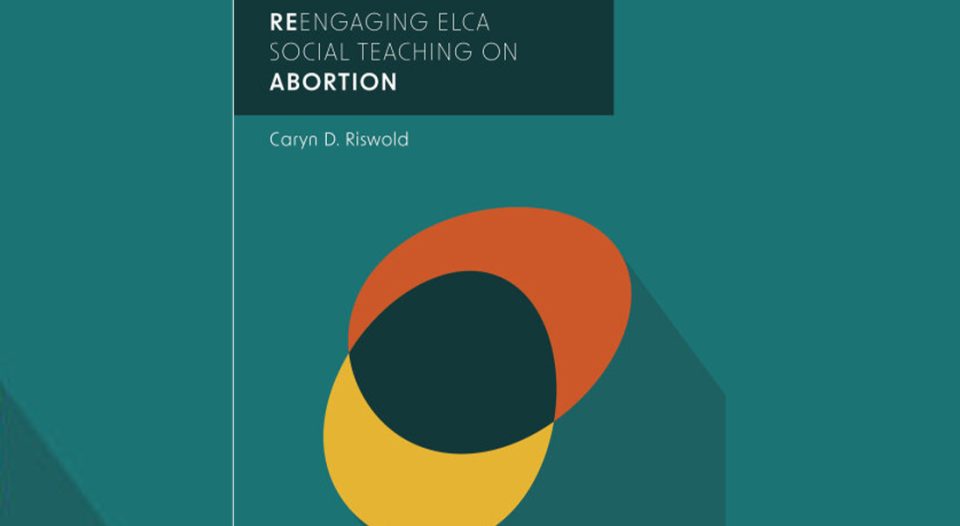Series editor’s note: In 2025, “Deeper understandings” will focus on the ELCA social statements. We hope to reintroduce them to readers as a means of provoking fruitful, enriching conversation between Christians with different understandings and convictions, and as a springboard for active discipleship in the world. Each article will introduce a particular statement and its Lutheran theological underpinnings, then suggest ways in which it can spark faithful conversation and action in the service of your baptismal vocation.
My hope is that you will find this series relevant to your current context and that it will help you express your Lutheran faith in your daily interaction with family, friends, neighbors and co-workers—for the sake of the flourishing of the gospel of Jesus Christ in the world and the life abundant of the neighbor and stranger.
—Kristin Johnston Largen, president of Wartburg Theological Seminary, Dubuque, Iowa, on behalf of the ELCA’s seminaries
When I started working on my book ReEngaging ELCA Social Teaching on Abortion (Augsburg Fortress, 2024), I had to focus. Writing a book on abortion and religion is too big, too much, and it has already been done well by others (among them Beverly Wildung Harrison, Rebecca Todd Peters, and Loretta J. Ross and Rickie Solinger).
What hasn’t yet been highlighted enough in public is the ELCA’s clear, powerful, 12-page social statement on abortion. Approved by the 1991 Churchwide Assembly, it is literally from another century—in the landscape of reproductive rights, from a different millennium. Yet its relevance today is striking.
In June 2022, the U.S. Supreme Court ruled in Dobbs v. Jackson Women’s Health Organization to overturn five decades of recognition for a constitutional right to privacy that ensured access to abortion. Federal protections around safe and legal abortion disappeared, and dozens of newly empowered states immediately implemented near and total bans.
In this context, revisiting the 1991 statement is illuminating for several reasons.
First, six of the seven things that the social statement specifically opposes are now reality. This includes legislation to outlaw all abortion, lack of access to care for justifiable abortions, lack of access to contraception and laws intending to harass those seeking abortion.
Second, while aspects of the statement may read as dated—including the medical science of abortion and the statement’s binary conception of gender—a theology of compassion and accompaniment will never become dated. This is one of the gifts Lutheran theology brings to this issue.
Third, it’s clear why and how the Lutheran tradition opposes such restrictions on women’s access to health care: this church trusts women. Lutherans understand complicated realities. The ELCA values relationships.
This church trusts women
God trusts women, Jesus learned from women, and the Spirit calls and empowers women. Scriptural evidence abounds from Hagar to the Hebrew midwives, from Priscilla to Mary, showing that God works in and through women. Jesus learned with and from women such as the Canaanite. Martin Luther advocated for the education of girls and declared that his wife should inherit his estate: both these things went against the patriarchal social order of his time. Throughout church history, the Spirit has called and empowered women to serve, teach, preach, preside and govern. Though institutions have been slow to catch up, God is always working through women. The question at stake in abortion politics is who has the right to decide. Either we trust pregnant people and their partners, along with doctors and spiritual advisers, or we don’t.
Lutherans understand complicated realities
Paradox informs a Lutheran understanding of reality, whether it be claiming the mystery of Jesus Christ as being both human and divine, or human beings as simultaneously saints and sinners. That there could be a pregnancy both desired and destined for death is something that Lutherans understand. Many ELCA Lutherans also believe that ensuring access to safe and legal abortion is part of building strong families. No one choice is always right for every pregnancy and every family. The only people who fully understand decisions around pregnancy and birth are those involved. ELCA social teaching isn’t simply that abortion is good or bad. It is both, and it is more. It depends. And it can be complicated.
The ELCA values relationships
The most striking line in the social statement for me has always been this one: “The language used in discussing abortion should ignore neither the value of unborn life nor the value of the woman and her other relationships.” How often do you hear discussions about abortion that focus exclusively on fertilized eggs, zygotes, heartbeats, fetuses and viability? The image most commonly associated with abortion politics is a free-floating fetus, which requires that the female body be erased.
Valuing a woman and her relationships means asking: Is her partner safe and trusted? Is her economic life secure? Is her body able to withstand pregnancy? Is her home safe? Are her other children secure and cared for? This church recognizes that there can be sound reasons for ending a pregnancy through induced abortion. What are those reasons? None of us can know that for another. Thus, there is no one answer about abortion. The statement suggests that trusting the people directly involved is the only compassionate response.
Faith as a gift for discernment
Some might be surprised to see that Lutheran Christian faith is a gift for discernment and political advocacy after the Dobbs decision. Now that the landscape has shifted dramatically, this church is called to new forms of compassion, accompaniment and action. Regardless of where you begin to engage this issue, you are not alone, and there are resources for the journey.
Get this column in your inbox: Visit livinglutheran.org/subscribe and sign up for the free email digest “LL Stories.” Receive the digest weekly, biweekly or monthly, and select the categories that interest you. (“Deeper understandings” is a “Voices of faith” column.)






